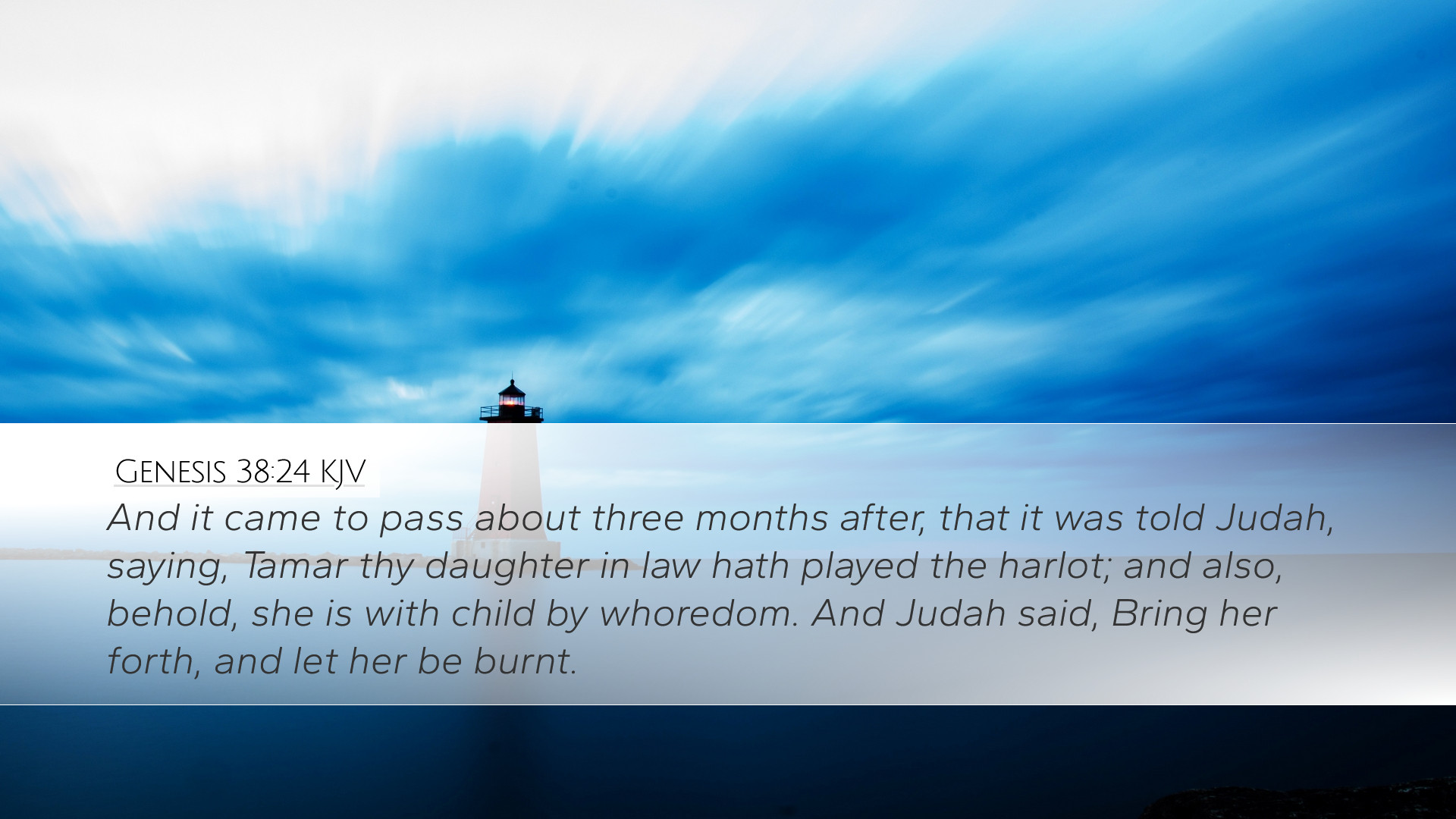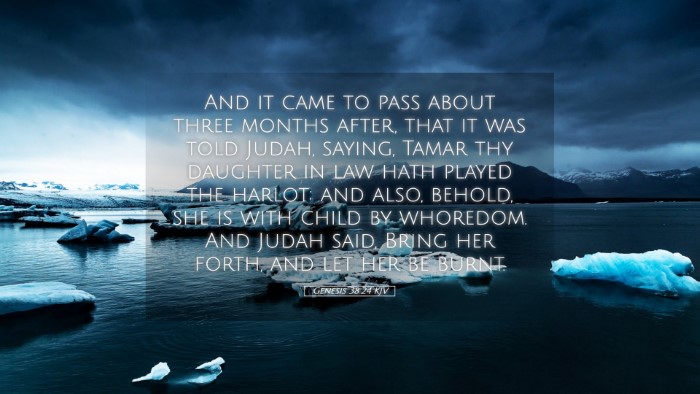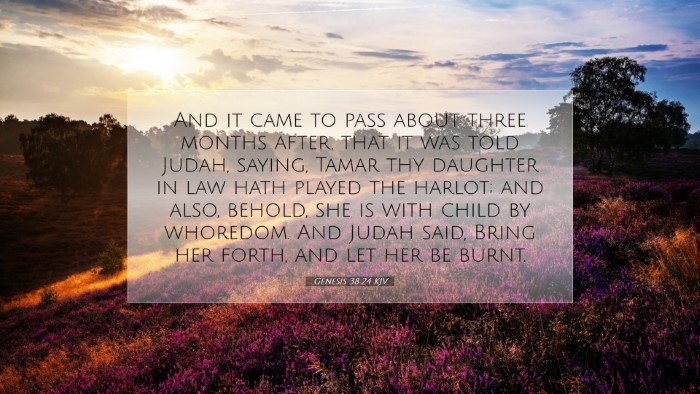Commentary on Genesis 38:24
Verse Context: Genesis 38 recounts the story of Judah and Tamar, a narrative that highlights themes of justice, redemption, and the complex moral fabric of God's chosen people. The specific verse, Genesis 38:24, reads: "And it came to pass, about three months after, that it was told Judah, saying, Tamar thy daughter-in-law hath played the harlot; and also, behold, she is with child by whoredom. And Judah said, Bring her forth, and let her be burnt."
Overview
This verse serves as a pivotal moment in the narrative, where Judah reacts to the news of Tamar's supposed infidelity. The reaction of Judah provides a window into the societal norms of the time, as well as the moral questions surrounding judgment, sin, and the ultimately redemptive story that unfolds.
Interpretation and Analysis
Judah's Legalistic Reaction
Matthew Henry notes that Judah's immediate response to condemn Tamar reflects a legalistic understanding of sin, where punishment is demanded without consideration for the complexities of human behavior and relationships. His desire to "burn" her indicates a stringent adherence to the laws that governed the society, showcasing a lack of mercy. This reaction starkly contrasts with God's grace, as the narrative will later reveal God's ultimate plan for redemption through Tamar.
Social Implications
Furthermore, Albert Barnes emphasizes the cultural context, noting that Tamar's situation represents the difficulties faced by widows and women in ancient societies. Judah's statement was not only a personal reaction but also indicative of societal pressures to uphold family honor and lineage. The punishment he seeks implies a societal view that promotes ostracizing and punishing the vulnerable rather than seeking restoration.
The Theme of Justice and Mercy
Adam Clarke expands on the dual themes of justice and mercy in this context, suggesting that Judah's harsh judgment reflects the broader human inclination to judge others while often overlooking one's own faults. Clarke posits that the narrative is gradually directing the reader toward the concept of divine mercy, which would later demonstrate how God can work through flawed characters to achieve His purposes. This sets the stage for the unfolding drama that will illuminate God's grace.
Theological Reflections
Judah's harsh words prompt deeper theological considerations regarding sin, repentance, and redemption. This passage serves as a reminder of the human propensity to judge quickly. It captures the essence of fallen humanity in need of grace. The significance of God's covenant is not nullified by human failings, confirming that redemption is often woven through human error.
Contrast with Christ's Message
As the New Testament reveals, the spirit of the law transcends its letter, as Christ would later demonstrate love and mercy in His ministry. Judah's instinct to punish prefigures the larger biblical narrative wherein God’s justice is ultimately fulfilled in the act of mercy demonstrated in the New Covenant. This historical narrative calls leaders and congregants alike to reflect on their judgments and the responses of grace that should prevail within the community of faith.
Application for Today
The complexity of human relationships illustrated in Genesis 38:24 speaks powerfully to contemporary issues of judgment, morality, and restoration within the church and society. Pastors and theologians can draw lessons about the importance of compassion and understanding in the face of perceived sinfulness.
- Encouragement for Grace: Leaders should remind congregations of the need for grace in interactions, urging them to seek restoration rather than condemnation.
- Judgment with Humility: Understanding that we all fall short can lead to a spirit of humility when confronted with the faults of others.
- Cultural Sensitivity: Recognizing the cultural differences in judgments depicted in scripture can guide reflections on how to approach situations in today’s society.
Conclusion
Genesis 38:24 encapsulates a moment of profound tension in the narrative of Judah and Tamar, revealing the human inclination towards judgment in stark contrast to the overarching theme of redemption. By contextualizing Judah's reaction within the broader biblical narrative, readers are encouraged to grapple with their own views on justice and mercy, thus fostering a community reflective of God's grace.


